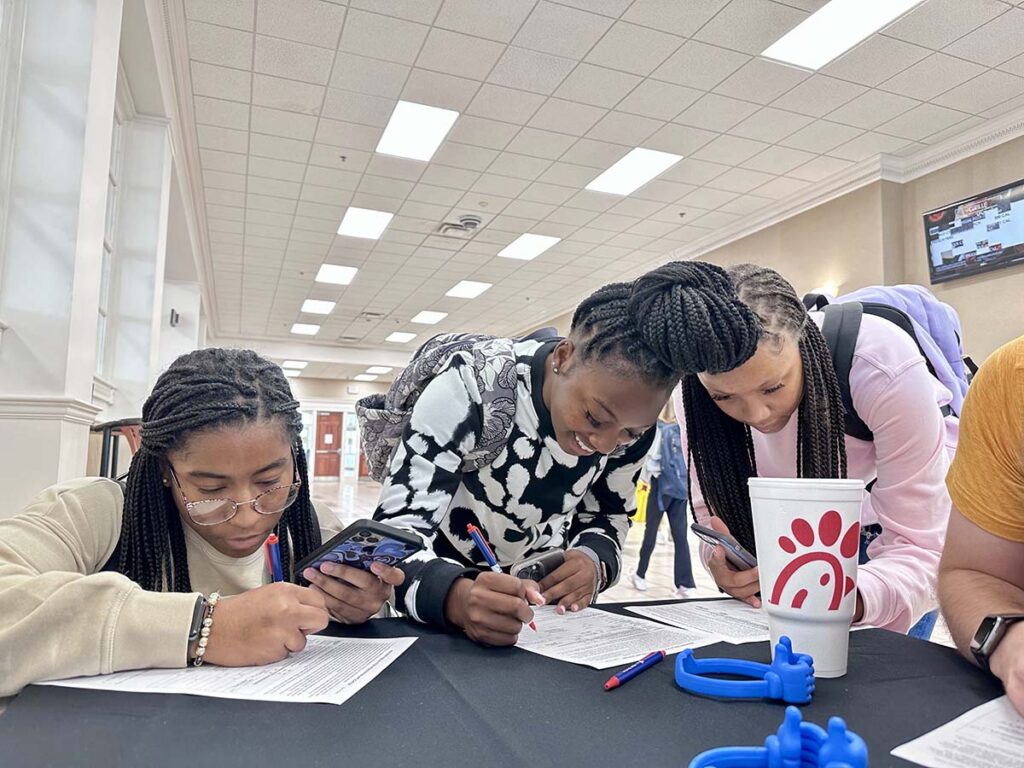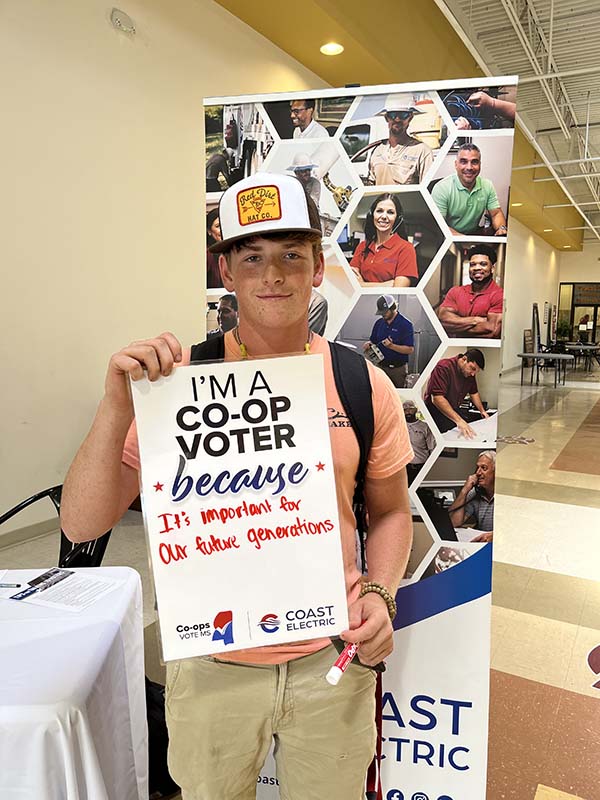
Electric cooperatives in Mississippi and North Carolina partnered with local community colleges for the first time to help boost voter registration efforts for the nonpartisan Co-ops Vote program.
In Mississippi, 10 co-ops registered about 200 voters on 12 community college campuses for National Voter Registration Day on Sept. 19.
“Honestly, I was just hoping that at least two or three of our co-ops would get involved, but we had 10 of our 26 co-ops participate,” said Lydia Walters, vice president of communication for the Electric Cooperatives of Mississippi, which worked with NRECA to help coordinate the effort. “I was very excited about the response. Our co-ops in Mississippi have a strong belief in concern for community.”
In addition to the 10 Mississippi co-ops and their statewide association, Lilesville, North Carolina-based Pee Dee Electric and the North Carolina Association of Electric Cooperatives participated in the pilot project.
Mississippi’s smallest co-op, 8,000-member Coahoma Electric Power Association, registered 44 people in just four hours at Coahoma Community College, said Qua’Shara Monix, the co-op’s communications specialist. She staffed a table in the student union with her colleague, Roosevelt Johnson, who works in the operations department.
“We had a couple of students helping us attract people to our table, and I had a big tray of cookies, which everyone loved,” she said. “It was fun just to talk and interact with them.”

The idea of pairing co-ops with community colleges came from one of NRECA’s 2023 summer interns, Delaney Behning, who worked in Government Relations with Laura Vogel, the association’s senior adviser for political affairs. Behning helped develop a toolkit for co-ops to use to host campus registration drives.
Besides registering voters, the events are a way for co-ops to reach potential new employees, Behning said. Many community colleges offer lineworker training programs as well as other vocational courses.
“Community colleges and technical schools train a lot of students in the skills that electric co-ops need,” said Behning, a junior at the University of Iowa who is studying political science. “These events help let them know what co-ops are, and they could facilitate a good future working relationship and connections with potential young voters.”
Vogel said NRECA is considering taking the community college partnership idea to co-ops nationwide for next year’s Co-ops Vote events.
“We’re always looking for something new that we can use to re-energize the program,” she said.
Walters advises other co-ops that are interested in the idea to reach out to their secretaries of state to get information on the rules for registering voters and a list of county clerks’ offices where completed registration forms can be mailed or delivered.
“The conversation I had with the secretary of state’s office was really crucial in making everything run so smoothly,” she said.
Monix said she contacted the community college’s student affairs department about a month before National Voter Registration Day to get approval for their event. The college supplied the table and chairs.
“Ultimately, the event was an attraction for the students,” she said. “It opened a platform for some students to question their peers and encourage them to share the reasons why voter registration is important. I was very impressed and proud to hear that ‘being a change’ in their community or hometown was part of their visions for the future.”
Most co-ops had one or two employees registering students at the events, which typically began sometime in the morning and lasted through lunch, Walters said.
“I wouldn’t call it a time-consuming project, but I certainly believe it had a huge impact,” she said.
In addition to Coahoma Electric, the Mississippi co-ops that participated were: 4-County Electric Power Association, Coast Electric Power Association, Cooperative Energy working with Dixie Electric Power Association, Northcentral Electric Cooperative, Singing River Electric Cooperative, Southern Pine Electric, Southwest Mississippi Electric Power Association and Tallahatchie Valley Electric Power Association.